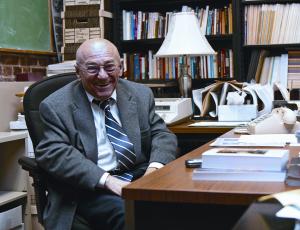A Quote by Joseph Campbell
Apocalypse does not point to a fiery Armageddon but to the fact that our ignorance and our complacency are coming to an end.
Quote Topics
Related Quotes
The world, as we know it, is coming to an end. The world as the center of the universe, the world divided from the heavens, the world bound by horizons in which love is reserved for members of the in-group: that is the world that is passing away. Apocalypse does not point to a fiery Armageddon but to the fact that our ignorance and complacency are coming to an end.
Apocalypse does not point to a fiery Armageddon but to the fact that our ignorance and our complacency are coming to an end. The exclusivism of there being only one way in which we can be saved, the idea that there is a single religious group that is in sole possession of the truth—that is the world as we know it that must pass away. What is the kingdom? It lies in our realization of the ubiquity of the divine presence in our neighbors, in our enemies, in all of us.
The very fact that the planet is probably unsustainable with all that we've done to it and are doing to it, it's an appalling piece of evidence. It shows our complacency, our lack of passion or inclination to be authentic and really understand our true values. It's consistently depressing, but nevertheless, we carry on.
Many great persons have been of opinion that love is no other thing than complacency itself, in which they have had much appearance of reason. For not only does the movement of love take its origin from the complacency which the heart feels at the first approach of good, and find its end in a second complacency which returns to the heart by union with the thing beloved--but further, it depends for its preservation on this complacency, and can only subsist through it as through its mother and nurse; so that as soon as the complacency ceases, love ceases.
Rapture cults had packed their suitcases and were massing together in great vigils, waiting for the end. "All bogus," she'd told Zuzana. "Just a bunch of crackpots waiting for the Apocalypse." "Because, fun, right?" Zuzana rubbed her hands together in mock glee. "Oh, boy. The Apocalypse!" "Right? I know. How much does your life have to suck to want the Apocalypse?
I had at one point this rather depressing image of some alien culture seeing the death of this planet - coming down in their spaceships and sniffing around; finding all our skeletons sitting around our TV sets and trying to work out why our end came before its time and they come to the conclusion that we amused ourselves to death.
What we also have to recognize is that the deficit levels that I'm inheriting, over a trillion dollars, coming out of last year, that that is unsustainable. At a certain point, other countries stop buying our debt, at a certain point, we'd end up having to raise interest rates, and it would end up creating more economic chaos and potentially inflation.
We have heard of a Society for the Diffusion of Useful Knowledge. It is said that knowledge is power, and the like. Methinks there is equal need of a Society for the Diffusion of Useful Ignorance, what we will call Beautiful Knowledge, a knowledge useful in a higher sense: for what is most of our boasted so-called knowledge but a conceit that we know something, which robs us of the advantage of our actual ignorance? What we call knowledge is often our positive ignorance; ignorance our negative knowledge.
































